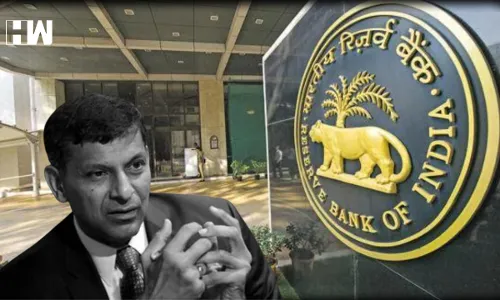New Delhi: The top finance ministry official accused the Reserve Bank of India of fixing interest rates to benefit industrialised countries a year after Narendra Modi’s BJP came to power in 2014, according to a trove of official documents obtained by The Reporters’ Collective.
Rajiv Mehrishi, the then-finance secretary under the late Arun Jaitley, made a remark after the RBI chose to prioritise controlling increasing prices over cutting interest rates, which would have made borrowing cheaper for businesses and individuals.
Although disagreements between the government and the RBI are not uncommon, the revelations are the first time a senior government official has accused the RBI of working to benefit “the white man” in “developed countries” and demanded an investigation into the “true purpose” of the central bank’s decisions.
The documents, which were accessed by The Reporters’ Collective (TRC) under the Right to Information Act, are being made public for the first time as part of a three-part investigative series.
Raghuram Rajan, an appointee of the previous Congress-led administration, was the RBI governor at the time in 2015. Rajan’s successor has been chosen by the BJP government, Urjit Patel.
Even under Patel, though, the RBI did not drop interest rates as substantially as the government desired. According to the documents, the finance ministry convened a meeting with the bank’s newly formed monetary policy committee (MPC) to press it to lower interest rates. The historic meeting was cancelled after committee members failed to attend, as was widely reported in 2017.
Despite the Modi government amending the Reserve Bank of India Act in 2016 to tighten the firewall between the RBI’s principal job of price regulation and the government’s political desire to stimulate growth even at the cost of growing inflation, the attempt to influence the central bank occurred.
The RBI’s then-governor Patel pushed back, writing to the government to tell them to stop trying to influence the RBI in order to keep the new monetary framework’s “purity and credibility” “in the public eye and our parliament.” Otherwise, the government would be breaking the law that protects the RBI’s independence, both in language and spirit.
Patel resigned on December 10, 2018, citing “personal reasons” as tensions over this and other topics grew. Official papers show that the government replaced him with Shaktikanta Das, a top finance ministry employee who had justified strengthening the government’s influence in the RBI’s rate-setting job.
The following news report’s input is taken from an investigative series presented by the Aljazeera`
As an independent media platform, we do not take advertisements from governments and corporate houses. It is you, our readers, who have supported us on our journey to do honest and unbiased journalism. Please contribute, so that we can continue to do the same in future.

